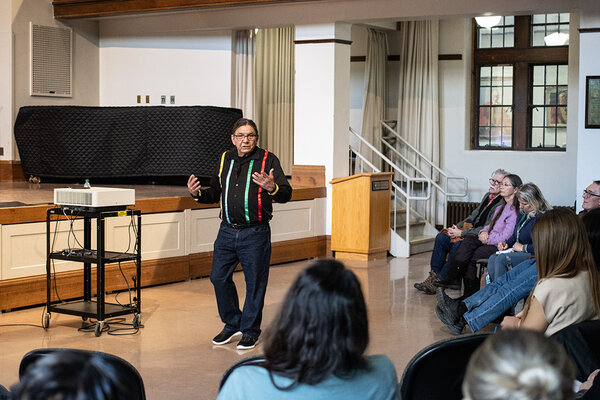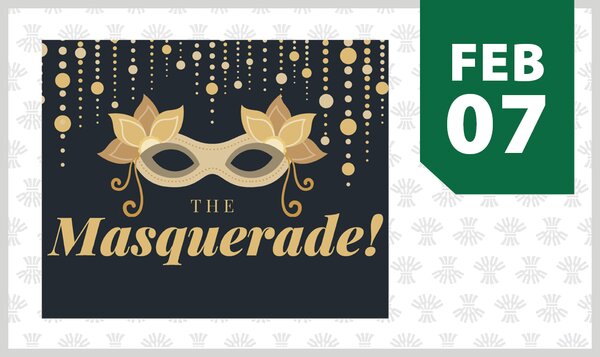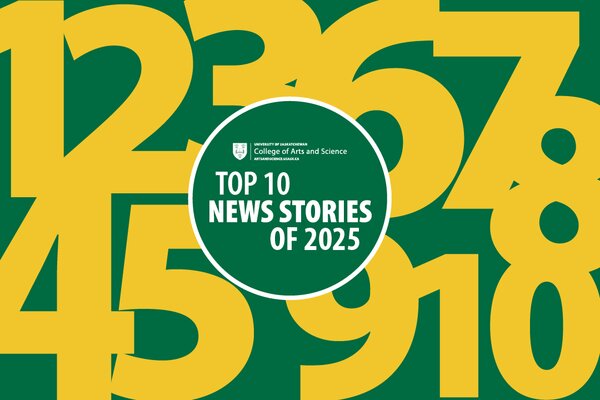
Aboriginal Student Achievement Program honoured with Provost’s Prize
ASAP provides a supportive first-year experience to Indigenous students in the College of Arts & Science

By Shannon Boklaschuk
When first-year University of Saskatchewan student Janice Osecap decided to pursue post-secondary education, she faced a number of “stresses”—including getting into the right classes.
Then Osecap found the Aboriginal Student Achievement Program (ASAP) in the College of Arts & Science, which offered support and encouragement throughout the academic year. Osecap, who is now an aspiring education student, said ASAP has many benefits—including tutoring sessions to help familiarize students with writing academic papers—noting one-on-one opportunities with her instructors helped to strengthen her “weak spots."
“The feeling of community within the university’s huge environment really helped me feel like I belonged,” she said. “In your first year it so easy to slip between the cracks and lose your motivation. I had access to information I would not have even known existed, if it weren’t for the guidance of the peer mentors.
“Educationally, I was able to find more success in smaller classrooms with more instruction, rather than large classrooms with lectures. The close interaction with the professors, as well as classmates, is really what helped me understand the depth of the lectures.”
ASAP aims to provide a dynamic and supportive first-year experience to Indigenous students in the College of Arts & Science, and its unique approach was honoured on April 27 with the Provost’s Prize for Innovative Practice in Collaborative Teaching and Learning. The Provost’s Teaching Awards at the U of S recognize outstanding teaching and classroom innovations by faculty, sessional lecturers or staff across a variety of categories.
The ASAP team includes Kristina Bidwell, Dirk de Boer, Sandy Bonny, Milo Cameron, Bev Digout, Sarah Gorham, Kayla Goshulak, Jessica Knoop, Shanelle Labach, Jenn Morgan, Lori Pollock and Paul Thompson.
Participants in ASAP join learning communities of students with common interests who attend classes together throughout their first year. Elders and peer mentors—upper-year Indigenous students—offer regular motivation and guidance. Advisors work closely with students to establish academic and financial plans.
Cameron first became involved with ASAP as a peer mentor and now works as a student advisor. While being a peer mentor was a lot of work, the experience was also “vastly rewarding,” he said.
“The reason why I wanted to be a peer mentor is because I knew what it felt like to be new at the University of Saskatchewan. I knew all the confusion that comes with being in a new environment and feeling like a fish out of water. I dealt with that and made it through,” he said.
“Being a peer mentor was an opportunity to help out students and assist them in navigating those tricky waters. I wanted to utilize my experience to make someone else’s experience easier.”

ASAP is built on a model of collaboration and community that has led to ever-improving success for Indigenous students. Since 2012, when ASAP was created, 423 students have been enrolled in the program and 15 of the College of Arts & Science’s departments have been involved.
Findings from a 2017 report demonstrate ASAP is making a difference. Since its inception, 60 per cent of First Nations students in ASAP returned for their second year of study, compared to 46.5 per cent of First Nations students who did not join the program. For First Nations students—who make up almost all students in ASAP—this means the program cuts the retention gap in half.
Sandy Bonny, coordinator of ASAP and STEM Pathways in the College of Arts & Science, said “it feels great” that the ASAP team has been recognized with the Provost’s Prize for Innovative Practice in Collaborative Teaching and Learning.
“We are proud to share our program not only in celebration, but in practical collaboration, with units across our campus community,” she said.
“As the largest undergraduate college at the U of S, we recognize that the successes First Nations, Inuit and Métis students experience in our courses translate into opportunities for them in professional colleges, in graduate studies and in a range of dynamic careers. ASAP has been built with continual student and community consultation, and this prize should rightfully celebrate the input and achievements of our learners and champions alongside those of the ASAP team.”
Aspiring nurse Dennis K. B. Cook, from Yellow Quill First Nation, described his time in ASAP as “absolutely amazing.” He appreciated a number of aspects of the program, including the smaller class sizes, the opportunities to learn more about Indigenous culture and visits from Elders, who did smudges with the students.
“The Medicine Wheel Learning Community had the classes I needed to apply for the College of Nursing. There are a few learning communities that are designed to help students achieve whatever path they desire,” Cook said.
“Apart from working on my degree, I hope to inspire Indigenous people to higher education and males to pursue a career in nursing, essentially deconstructing the polarization of masculinity and femininity in career choices,” he added.
ASAP students have said the program has helped them develop the confidence and skills necessary to pursue their degrees. More than 95 per cent of ASAP students have consistently reported that they are satisfied with the high quality of teaching in the program.

ASAP also collaborates with multiple off-campus partners, including Oskayak High School. Grade 12 students in their final term come to the U of S once a week for 12 weeks and complete a university course, easing their transition to university.
ASAP has also worked with Ahtahkakoop Cree Nation to provide a full first-year arts and science program on reserve, and brings Indigenous alumni to campus to meet with and mentor ASAP students.
ASAP is located in the Trish Monture Centre for Student Success in the College of Arts & Science. The program can be contacted at tmc@artsandscience.usask.ca or at 306-966-2004.
ASAP 2018-19 signup is scheduled to open on May 1 at noon.


